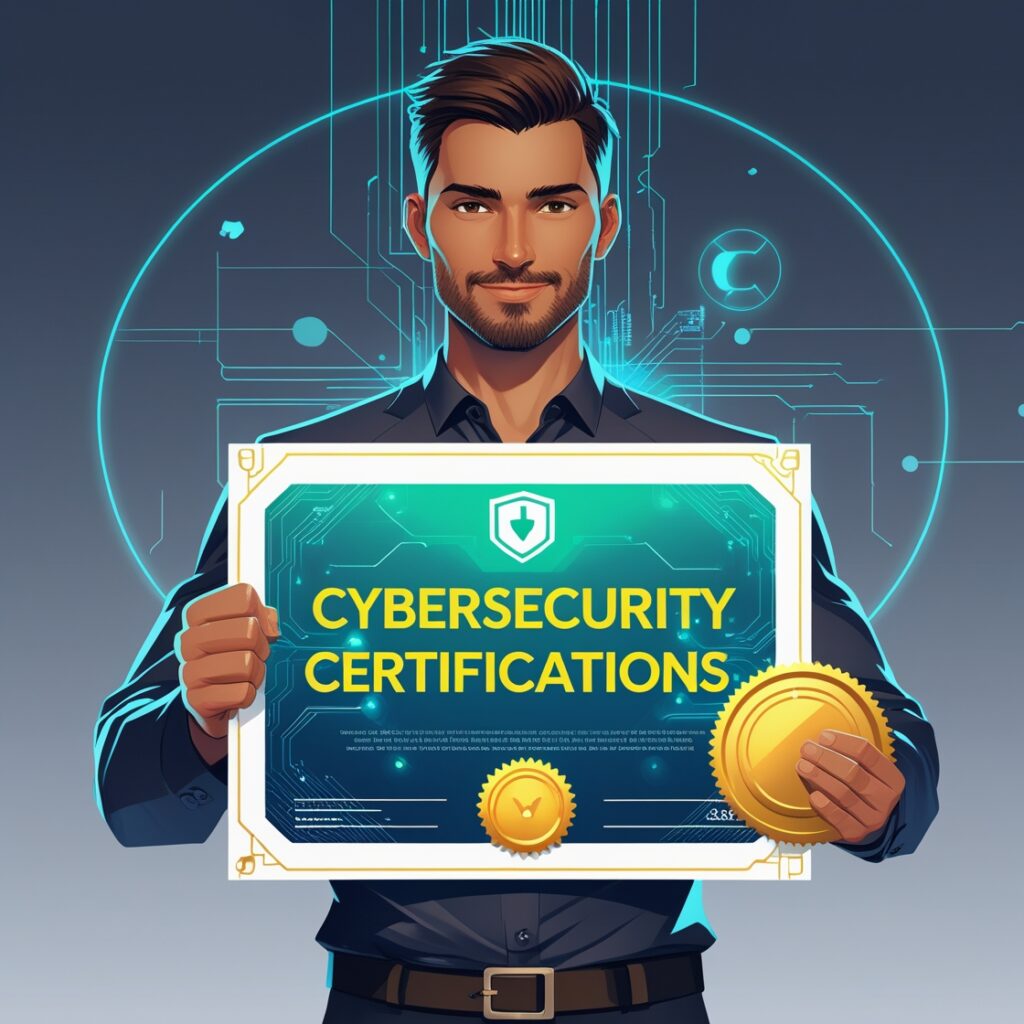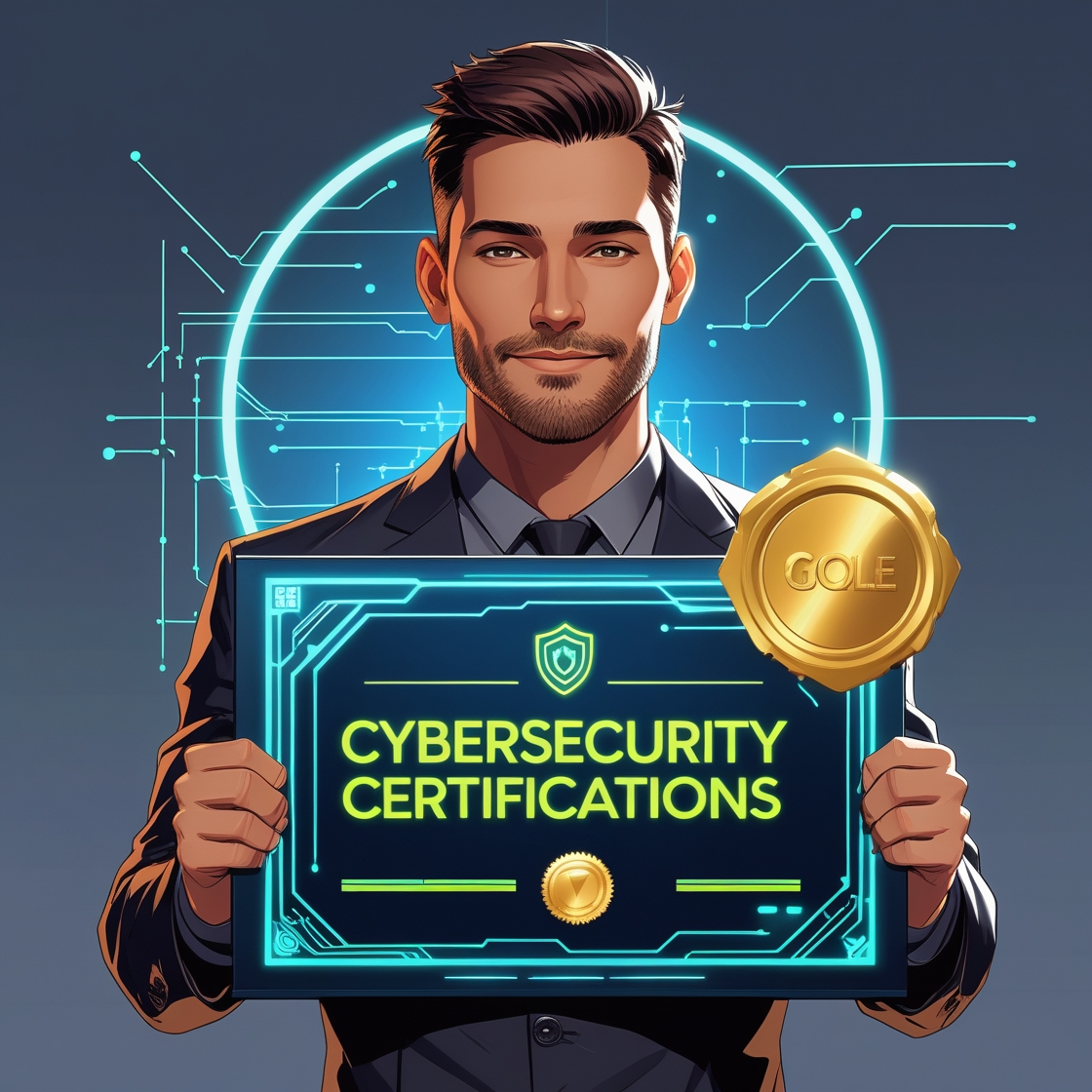Cybersecurity has become a hot topic, not only for businesses but also for individuals looking to grow in an exciting and fast-paced industry. Earning cybersecurity certifications is one of the best ways to boost your skills, gain recognition, and stand out in an increasingly competitive field. Whether you’re just starting out or are a seasoned professional, certifications can open the door to better job opportunities and higher pay.
This guide will walk you through everything you need to know about cybersecurity certifications from benefits to top options available and how to prepare for exams.
Table of Contents
- Why Are Cybersecurity Certifications Important?
- Popular Cybersecurity Certifications You Should Know
- How to Choose the Right Cybersecurity Certification
- Tips for Preparing for Cybersecurity Certification Exams
- Final Thoughts

Why Are Cybersecurity Certifications Important?
Cybersecurity certifications validate your skills and expertise, making them a vital asset in today’s tech-driven world. But why should you consider getting one? Here are some key advantages:
- Boost Career Prospects: Employers often prioritize candidates with certifications, as they demonstrate industry-recognized skills.
- Specialized Knowledge: Certifications make you an expert in niche areas like network security, ethical hacking, or incident response.
- Higher Earning Potential: Studies show that certified professionals earn significantly more than non-certified peers.
- Global Recognition: Certifications like CISSP and CISM are respected worldwide, allowing you to find opportunities globally.
- Build Credibility: They showcase your commitment to staying updated in a constantly evolving industry.
With the growing demand for cybersecurity professionals, certifications can truly set you apart.
Popular Cybersecurity Certifications You Should Know
Cybersecurity certifications cater to different experience levels and areas of focus. Here are some of the most popular options:
- CompTIA Security+
- Skill Level: Entry-level
- Focus Areas: Network security, operational security, and risk management
- Why It’s Good: Perfect for beginners stepping into the field.
- Certified Information Systems Security Professional (CISSP)
- Skill Level: Advanced
- Focus Areas: Security management, software development, asset security
- Why It’s Good: Recognized globally, ideal for leadership roles.
- Certified Ethical Hacker (CEH)
- Skill Level: Intermediate
- Focus Areas: Penetration testing, vulnerability assessment
- Why It’s Good: Designed for those interested in ethical hacking.
- Certified Information Security Manager (CISM)
- Skill Level: Advanced
- Focus Areas: Information security governance, management
- Why It’s Good: Tailored for managers overseeing cybersecurity programs.
- CompTIA Cybersecurity Analyst (CySA+)
- Skill Level: Intermediate
- Focus Areas: Threat detection and response
- Why It’s Good: Focuses on a proactive security approach.
Each certification has its unique features, so understanding your career goals will help you decide the right one.
How to Choose the Right Cybersecurity Certification
Selecting the right certification can feel overwhelming. Here’s how to narrow it down:
- Assess Your Career Goals
Are you aiming for network defense, penetration testing, or management? Your goals will determine which certification aligns best. - Evaluate Your Experience Level
Beginners might find CompTIA Security+ more approachable, while seasoned professionals should lean toward certifications like CISSP or CISM. - Research Industry Demands
Find out what certifications are mentioned in job listings relevant to your desired role. - Consider the Cost
Certifications can be pricey, so weigh the cost against your career benefits. Some employers may reimburse you! - Understand Prerequisites
Certain certifications, like CISSP, require years of experience, while others are more flexible.
Making an informed decision ensures you get the most value from your efforts.
Tips for Preparing for Cybersecurity Certification Exams
Once you’ve chosen a certification, the next step is preparation. Here are some tips to ace your exam:
- Study the Exam Blueprint
Focus on the topics outlined in the exam guide. This ensures you’re studying the right material. - Invest in Quality Study Materials
Use books, video tutorials, and online courses tailored to your certification. - Practice with Mock Exams
Simulated exams familiarize you with question formats and time constraints. - Join Online Communities
Forums, study groups, and Reddit threads can provide valuable insights and resources. - Stay Consistent
Make a schedule and stick to it. Consistency is key when juggling study time and work commitments. - Take Care of Yourself
Get enough rest and avoid burnout. A fresh mind always works better on exam day.
Preparation may seem daunting, but with the right approach, you’ll feel ready to tackle any exam.
Final Thoughts
Cybersecurity certifications are more than just credentials; they are gateways to growth, learning, and career advancements in the tech field. Whether you’re an aspiring ethical hacker, a security analyst, or a leader in cybersecurity management, there’s a certification that matches your aspirations.
